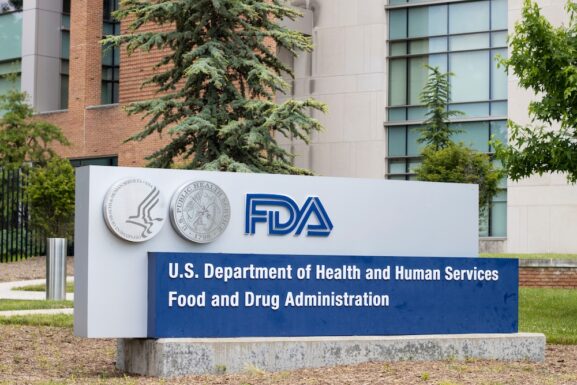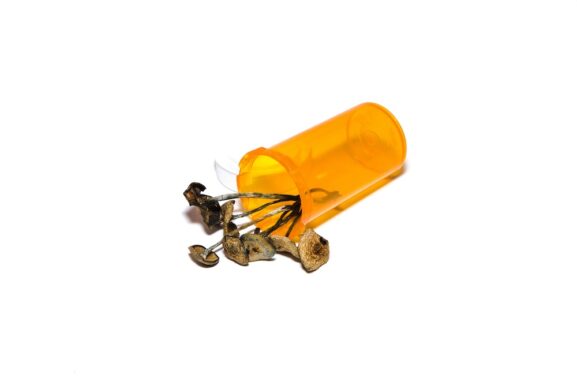Is Ketamine A Stimulant?
One in five Americans suffer from a mental illness, with depression alone impacting nearly 21 million adults in the U.S. in 2020. With more people needing and seeking mental health care, there has been a growing interest in alternative mental health treatments. This includes using ketamine for therapy.
The prevalence of treatment-resistant mental health issues like treatment-resistant depression is another driving force in the advancements of psychedelics and increased interest in treatments like ketamine therapy. Some estimates claim that a third of patients with major depressive disorder have treatment-resistant depression. But promising research indicates that ketamine may be a solution to the issue.
With more than 1,800 ketamine clinics across the U.S. this encouraging alternative treatment is certainly growing in popularity. Still, with every new alternative treatment option comes a host of questions and concerns. Questioning available mental health treatments is a healthy habit, and investigating as much as you can about every treatment option is key to a better experience.
Here, we explore this promising treatment for mental health issues and learn whether or not ketamine is a stimulant and what this means for patient health and outcomes.
In this article, we answer some of the following questions:
- What is ketamine?
- What is a stimulant?
- Is ketamine a stimulant?
- How does ketamine therapy work?
RELATED: Ketamine Experiences: What Happens If It Doesn’t Work?
What Is Ketamine?
Ketamine was originally synthesized in 1962 by an organic chemist called Calvin Stevens. It was used at first as an anesthetic for animals. Later, it was proven effective for humans and it entered the medical world, becoming a hospital staple and even being used in the field during the Vietnam War to manage pain and shock in wounded soldiers.
Gaining FDA approval as an anesthetic in 1970, today it’s commonly used for pain relief outside the operating room. Ketamine’s ability to induce sleep, relieve pain, and cause short-term memory loss make it a widely popular anesthetic in the medical world.
Since ketamine is soluble in water and in lipids (oils), it can be taken in a range of forms including through the bloodstream, into the muscle, and into bone. It can also be found in the form of a nasal spray, lozenges, or as oral tablets.
In the 2000s ketamine’s ability to ease depression started becoming apparent to doctors, and so, research into ketamine therapy began. Today, mental health professionals use ketamine to treat mental health issues including treatment-resistant depression, anxiety, PTSD, OCD, and addiction.
Is Ketamine A Stimulant?
No. Ketamine is a dissociative anesthetic, not a stimulant. This means that it induces anesthesia in high enough doses. The dissociative aspect of ketamine means that it distorts the senses of sight and hearing, and causes patients to feel disconnected from their surroundings or reality. It essentially induces a dream-like state and can trigger deep relaxation if used correctly.
Ketamine’s frequent use has been recreationally because of its ability to put users into a dream-like trance. When being used unsupervised or mixed with other substances, it can be fatal. This is why using ketamine should be in an environment like trustworthy ketamine clinics. This way, a professional can monitor clients.
While ketamine is dissociative and not a stimulant, it can have stimulant effects — especially in low doses, such as those used in ketamine therapy. Patients report an enhanced sense of wellbeing and a sense of happiness, which are effects of both stimulants and dissociatives alike.
However, there are many differences.
While stimulants increase alertness, dissociatives like ketamine increase relaxation, and cause users to feel floaty, numb, pain-free, safe, and unaware in comparison.
RELATED: How Ketamine Treatment For Anxiety Works, Per Medical Experts
Ketamine Is Not A Stimulant, So What Is A Stimulant?
A stimulant is any substance that speeds up communication between the brain and the rest of the body. Commonly referred to as ‘uppers’ they cause a person to feel more alert, energetic, and confident. In low doses, stimulants can cause euphoria and a heightened sense of wellbeing. Ketamine is known to have this effect on patients.
In higher doses, stimulants can cause the following:
- Anxiety
- Tension
- Nausea
- Seizures
Stimulants also often increase heart rate and blood pressure, while and reducing appetite.
Stimulants are commonly thought of as party substances. However, things like caffeine and nicotine are both household stimulants, and are easily accessible.
If you are considering ketamine therapy to treat chronic pain or mental health issues, you make be asking, is ketamine a stimulant or something else?
How Does Ketamine Therapy Work?
An estimated 70 percent of people who try ketamine therapy for mental health concerns benefit from it long-term and researchers are looking into the reasons behind this.
In some people with depression, neurons in the brain don’t communicate with each other. This is because they don’t get excited by neurotransmitters (the chemicals impacting communication) the way they should. Ketamine helps the nerve cells to communicate better by helping them get more receptors to effectively pass on neurotransmitters. Essentially, ketamine helps regrow synapses that depressed people may have lost through stress.
While traditional antidepressants can take multiple weeks before having any effect on depression, the effects of ketamine start immediately, with patients reporting an improved mood and relief straight after their infusion.
RELATED: What Are The Biggest Misconceptions About Ketamine Therapy?
In Conclusion
Although ketamine is not a stimulant, it is dissociative. Rather than making patients more alert and euphoric, it causes a deep feeling of relief and relaxation.
The reason behind ketamine’s effects are still unknown, but research suggests it helps rebuild brain pathways that are missing in people with depression. Ketamine’s fast-acting and long-lasting effects are what make it the increasingly sought-after alternative treatment for a wide array of mental health issues, offering hope for the millions of people affected by them.
If you or someone you care about is battling with treatment-resistant mental health issues, ketamine-assisted psychotherapy could help. Find a reliable ketamine clinic near you to find out if this promising alternative treatment can work for you.



